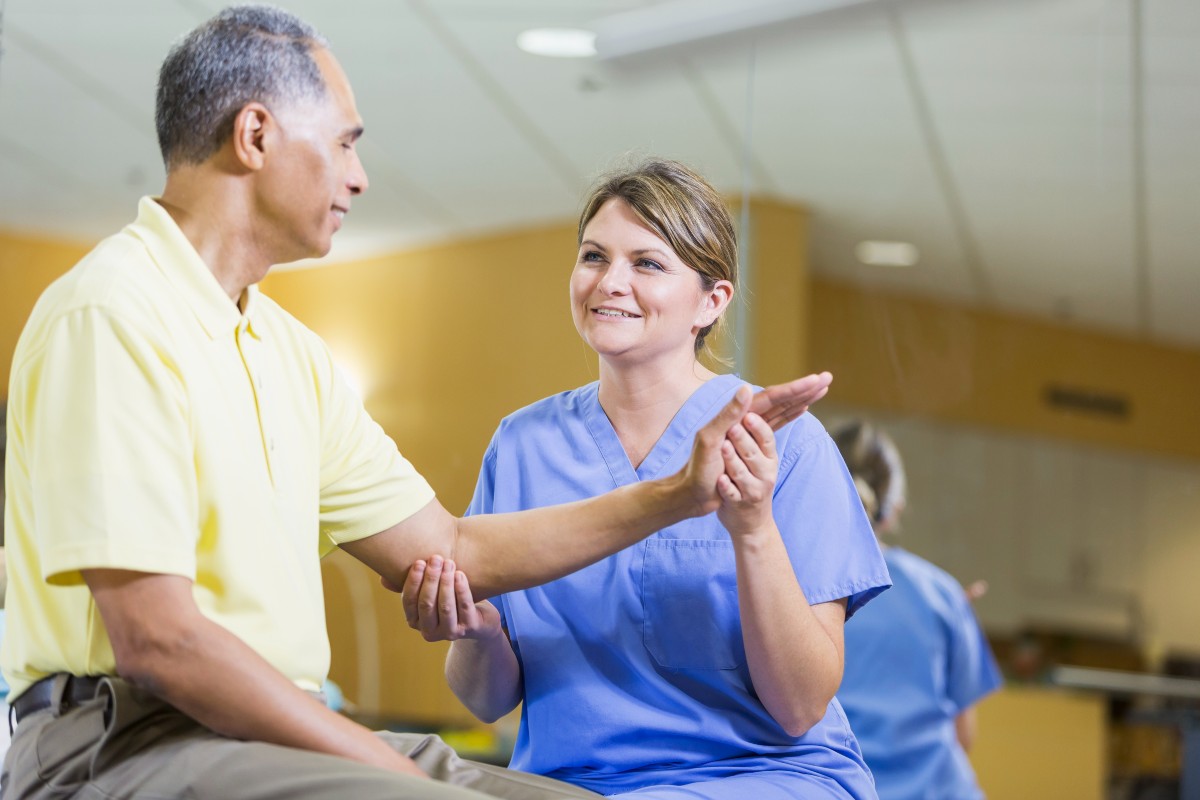This year, it’s estimated that over 81,000 Americans will be diagnosed with bladder cancer. While it may not be a type of cancer we hear much about, it’s the fourth most common type of cancer for men. While women get it too, it’s three times more common in males.
“There are certain characteristics that make one individual more likely to develop bladder cancer than another,” says Ostap Dovirak, M.D., urologist with Riverside Health System. “However, everyone should be aware of the risk factors and symptoms associated with the disease.”
Risk factors
Factors associated with a higher risk for bladder cancer include:
- Gender. The American Cancer Society estimates there’s a one in 27 chance of men developing the disease over their lifetimes, compared to a one in 89 chance for women.
- Older individuals. People over the age of 55 make up 90 percent of bladder cancer cases. The average age for diagnosis is 73.
- Smoking. Smoking tobacco in any form causes chemicals to build up, which are removed in the urine. These chemicals can damage the tissues inside the bladder, making it more at risk to cancer.
- Chemical exposure. Just as with tobacco, chemicals used in certain manufacturing processes are removed by the bladder and can damage it. Arsenic, which can be found in contaminated well water, is also a risk.
- Radiation treatments and chemotherapy. Some types of cancer treatments can heighten the risk of bladder cancer.
- Race. White individuals develop bladder cancer more often than do people of color.
- History of the disease. If others in your family had bladder cancer, especially if it’s a child, sibling or parent, you may be at greater risk of getting it yourself.
- Bladder inflammation. Things that irritate the bladder over time, like catheters and infections, have been shown to add to cancer risk.
Signs and symptoms
Common signs of bladder cancer include:
- Bloody urine. This is the most common symptom of bladder cancer. If you note red or brown blood in your urine, this needs to be checked out immediately.
- Frequent or painful urination. This includes a burning sensation when you urinate. You may also need to urinate quite often, or feel as though you need to urinate but can’t.
- Body pain. This pain is typically on one side of the lower back area or in the pelvic region.
- Fatigue. You may become tired and weak, lose weight and not feel like eating.
What to do
There are some steps you can take to help prevent bladder cancer.
- Quit smoking. If you don’t smoke, don’t start; if you do, stop. If you need help with quitting, ask your physician.
- Be careful with chemicals. If you must be around them in your job, for example, be sure to take the recommended protective measures.
- Get screened. If you are in a high-risk category, let your doctor know so you can get tested regularly.
- Be alert. If you show any of the symptoms mentioned, get them checked out immediately.
- Eat right. A diet high in antioxidants helps prevent cancers of all types. These are primarily found in fruits and vegetables.
Stay alert
If you have concerns or signs associated with bladder cancer, get them checked out by a physician right away. However, don’t panic.
“There’s good news,” says Dr. Dovirak. “These symptoms are more often caused by something other than bladder cancer. Furthermore, most cases can be detected before they spread to other parts of the body, making them more treatable.”
If you’re concerned about your bladder health, talk to your primary care doctor. Schedule an appointment.



